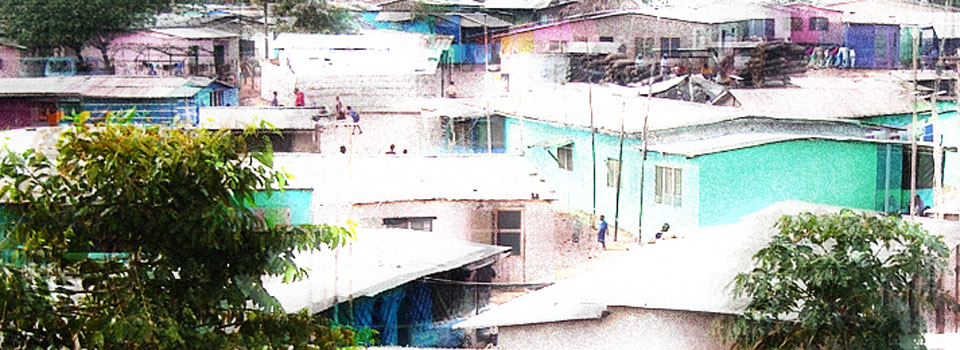When Abby Hardgrove began the child and family development graduate program in UGA’s College of Family and Consumer Sciences, she wasn’t sure what direction her research might take, but a book purchased to read at the beach provided the impetus for Hardgrove to travel half-way around the world and to begin learning the importance of faith for refugees who, in many cases, have lost everything else.
“I bought [Notes From My Travels by Angelina Jolie] on a whim and thought it would be this Hollywood princess telling about visiting the little impoverished children,” Hardgrove recalls. “Instead, it really opened my eyes. I had no idea how many people, including children, were living as refugees; how many land mines are still out there; the medical situations faced by refugees.”
In her planning, she discovered Buduburam while researching refugee camps on the United Nations website. Established 17 years ago to house those escaping the civil strife in Liberia, it housed 40,000 refugees at its peak. The recent calming of tensions in Liberia, however, has reduced Buduburam’s population to around 25,000.
Hardgrove began her research by talking with groups of refugee women and children. Among the children she interviewed, Hardgrove found an acceptance of life in Buduburam, but for their parents, life is hard and they don’t see that ever changing.
Despite the daily hardships and lack of opportunities they face, Hardgrove says the people she interviewed remained focused on two areas: their children and God.
Of all that she learned from the refugees in Buduburam and how they have managed to re-create their daily lives, Hardgrove says their belief that God is watching over them was perhaps the most surprising. She never heard anyone blame or question God about their circumstances. Instead, God was viewed as a source of help.
“Isn’t that fascinating?” Hardgrove asks. “(To imagine) living hand to mouth in a place where people don’t like me, in a position where I can’t move, when I’ve watched my daughter raped in front of me. You get somebody like that who still will say, every time they’re asked about it, no matter how they’re asked about it, ‘It’s by the grace of God that I’m here. It’s by the grace of God that the children that I have are healthy. It’s because of God that I will eat later today.'”
Faith wasn’t among the ideas Hardgrove had planned to explore in her thesis, but the wealth of spontaneous comments made its inclusion essential. In fact, she is now considering studying the role of faith and religion as a part of her doctoral studies, which she began this semester at the University of Oxford, England.
“I want to look at two religious groups and compare them in refugee situations,” she says. “I wonder if we can look at, for example, Muslim refugees and how they’re making sense of their experience and then visit a refugee camp that is more Hindu, for example. The question is, how does religion set you up to deal with your experience?”
